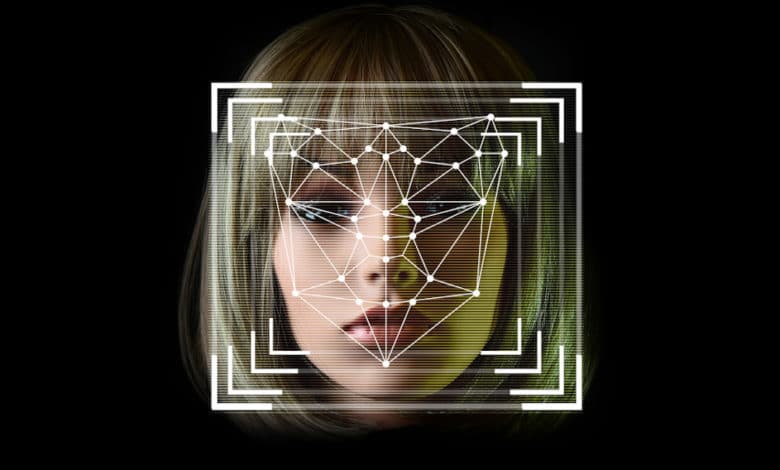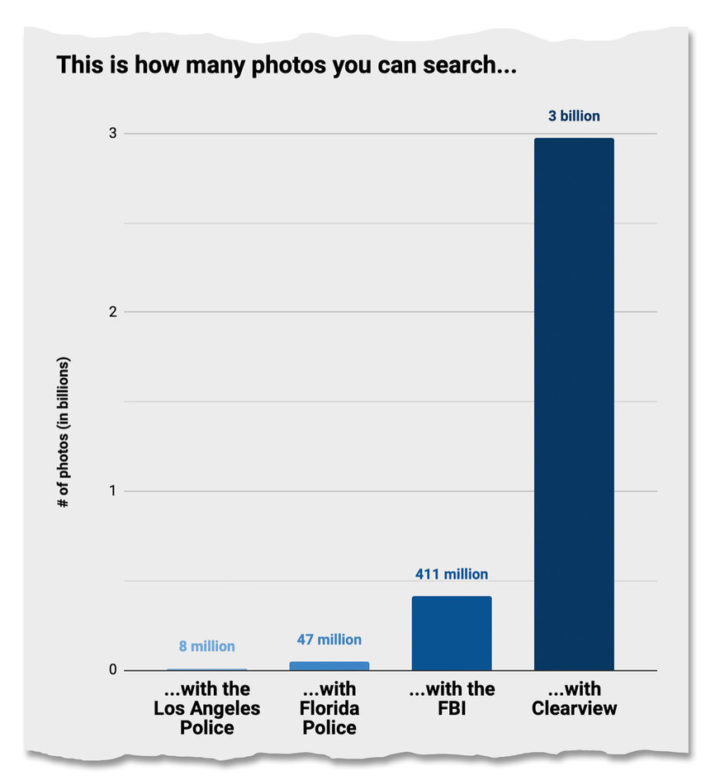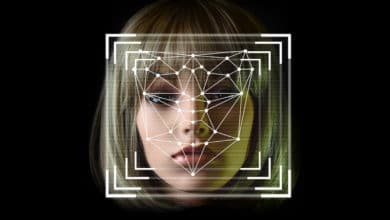
According to a research of the New York Times the small startup Clearview AI is said to have built up the probably largest photo database for face recognition worldwide so far. The company has used around three billion images of people from various Internet sources, including publicly accessible images from Facebook, YouTube and Venmo as well as millions of smaller websites. Although the scraping of user images is a technically relatively simple process on most websites, enabling the creation of large databases, it usually violates the terms of use.
According to a company source, facial recognition was offered as a service to 600 government agencies last year. One possible use in the USA, for example, is identity verification at entry, which is currently already working with facial recognition and uses images taken specifically for this purpose. The FBI could also be a potential customer, because the database of the investigating authority contains “only” 400 million images, and Clearview’s much larger database therefore promises greater accuracy.
98.6 percent hit accuracy
According to a document of the startup, the current facial recognition hit accuracy is 98.6 percent, which according to Clearview is “the highest in the world. False hits (false positives), i.e. people who are recognized by the software as a different person, can thus be virtually ruled out. The hit rate of the database, i.e. the number of people who can be identified from the images available, is currently between 30 and 60 percent. Clearview promises an increase to 80 percent by the end of 2019, and according to the company, this will be achieved through “hundreds of millions of new faces added to the database each month.
Stalking journalists
Instead of responding to questions from journalists who had asked for a statement, they reported that Clearview had been spying on them. Perhaps this was intended to build pressure to prevent the article from being published. Specifically, the journalists report that some police officers, who had checked the journalists’ pictures for research purposes via their database, subsequently received calls from Clearview regarding possible cooperation with the press. Clearview itself denies this and explains that although there were calls, they were only made because the software’s alarm system issued messages due to unusual search queries.
Founded in 2016
Clearview was founded in 2016 by the developers Hoan Ton-That and Robert Schwartz. Robert Schwartz had already worked for the former mayor of New York, Rudolph Guiliani. The creation of the facial recognition database was financed, among others, by the U.S. billionaire Peter Thiel, who became famous as a Facebook investor and Paypal co-founder. Thiel is one of the few influential people in Silicon Valley who publicly supported the controversial US President Donald Trump. With “only” 200,000 US dollars flowing in 2017, however, the billionaire’s investment in the start-up is relatively small. One particularly critical point here, however, is that Thiel, who is on the board of directors of Facebook, has thus deliberately financed a company that violates the social network’s terms of use. Ton-That merely said that “many people” were violating Facebook’s rules and that this was “known to Facebook.
So far it is known that the police in the US state of Indiana have used Clearview’s facial recognition software. Whether the company has other customers who actively use the software is not known. According to Indiana police, the test was able to clear up a number of cases within minutes, in which suspicious persons were identified. Among other things, one person was recognized from a mobile phone video in photos of a social network. Schwartz in particular, who maintains good contacts with the Republicans from his work with Guiliani, is said to have established contacts with authorities.
Computer glasses in planning
In addition to facial recognition software, which currently requires a computer, Clearview is also working on computer glasses that identify people in the wearer’s field of vision in near real time. However, according to Clearview, this product will not be sold.
In response to the New York Times report, there have been a number of reports from politicians and civil rights activists. US Senator Ron Wyden of the Democratic Party, for example, said that the situation worries him. He therefore demands that Americans should be informed whether their photos have already been secretly entered into the database.



